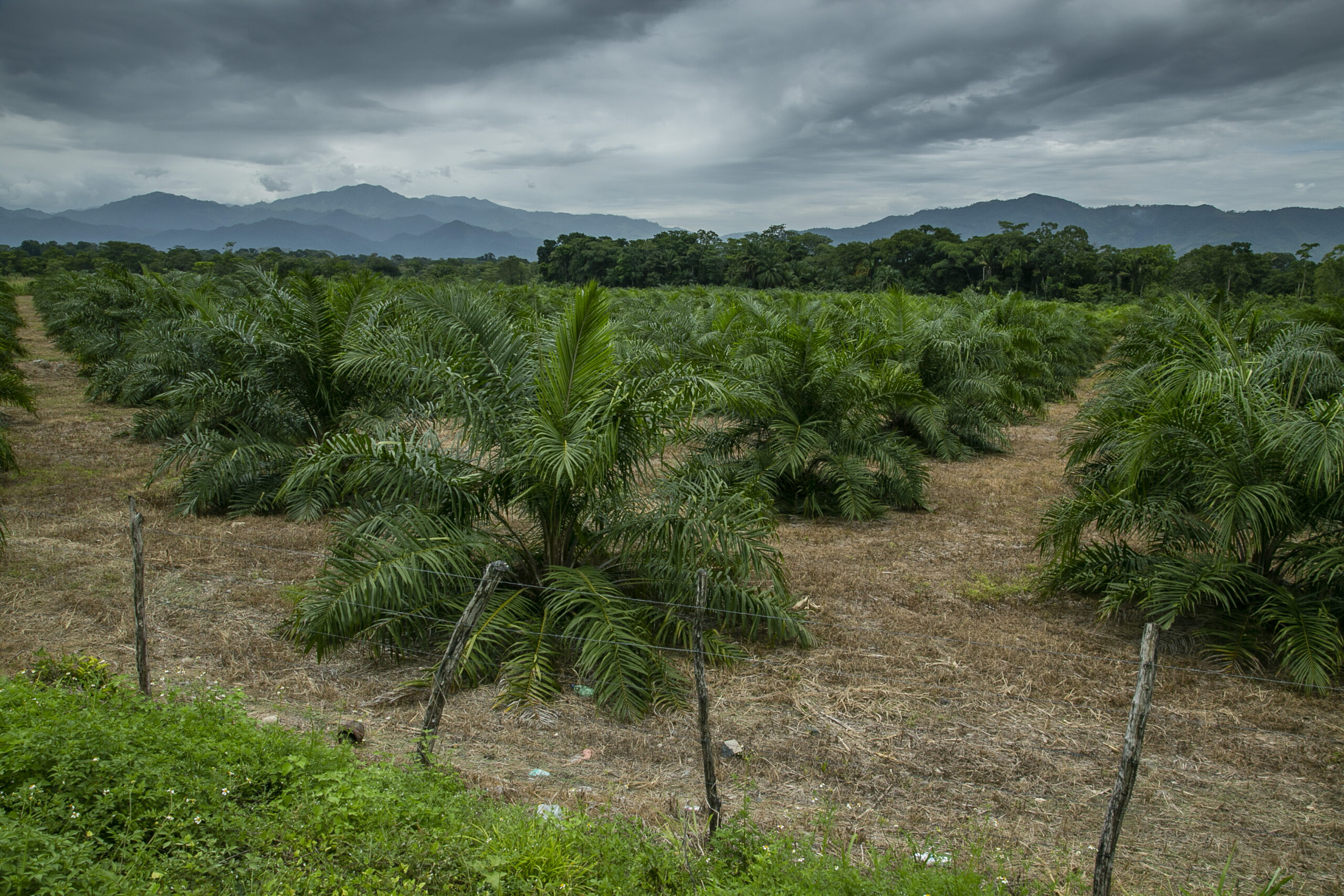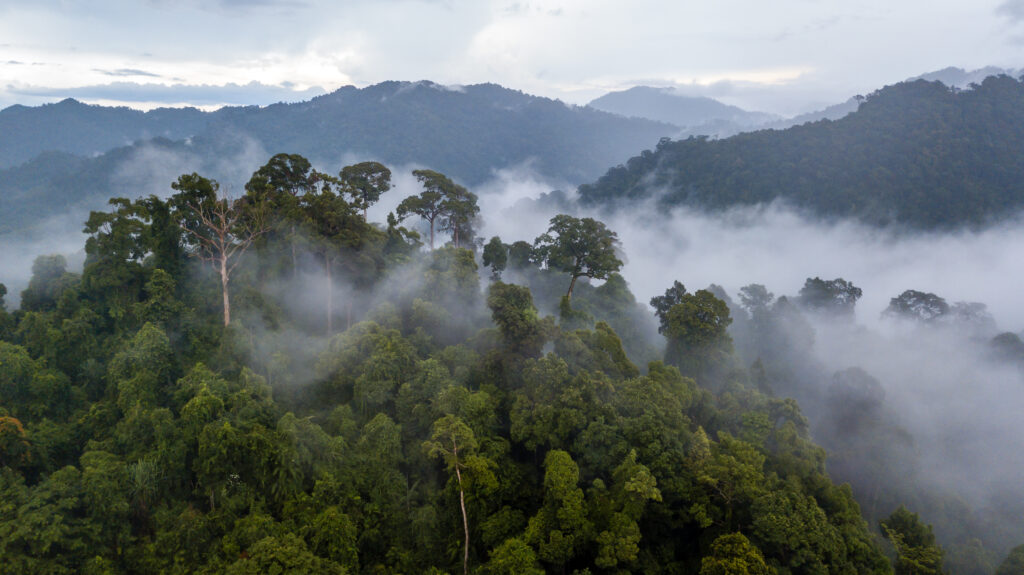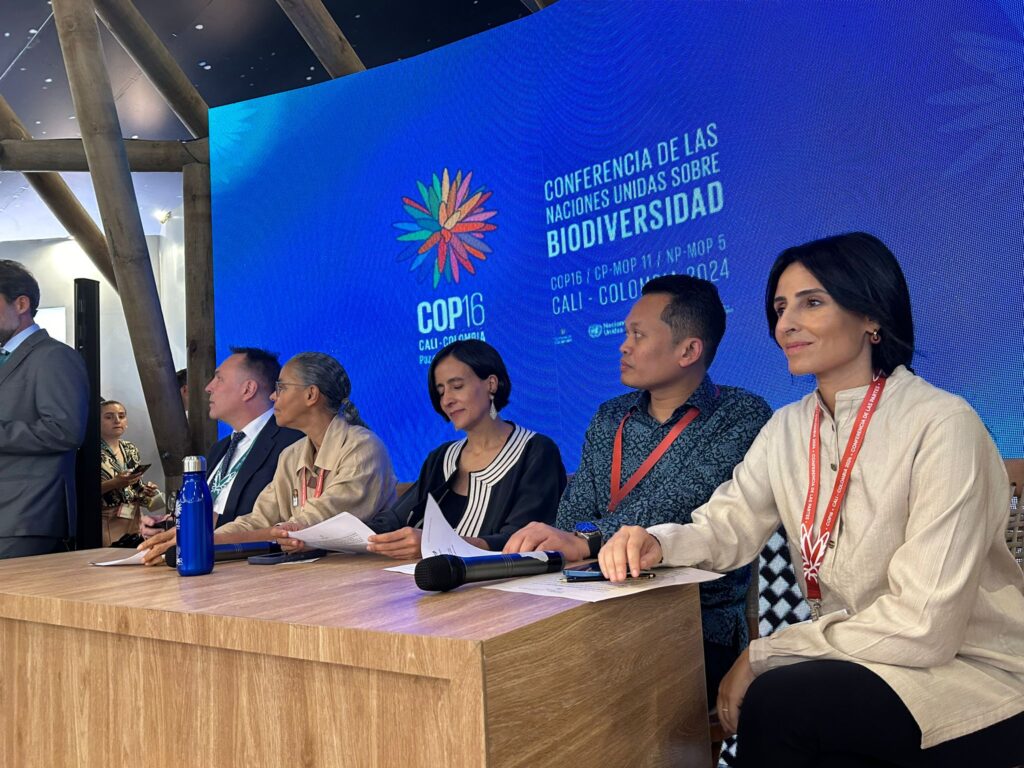Palm oil is a major driver of deforestation
All around the world, tropical rainforests have been cleared on a massive scale to make way for sprawling palm oil plantations. The issue is prevalent in Africa, Latin America and Southeast Asia, where palm oil cultivation is now adding to the list of pressures driving deforestation in these regions.
Palm oil is one of the primary causes of forest loss associated with products imported into the EU. Yet, despite its environmental impact, EU regulations do not require manufacturers to label palm oil explicitly in product ingredient lists. Instead, the term “vegetable oil” is often used, obscuring its presence in everyday goods. This lack of transparency makes it difficult for consumers to identify which products contain palm oil and to make informed, sustainable choices at the supermarket.
There are still extensive areas where oil palm cultivation could occur without leading to deforestation. However, tropical forests are often cleared regardless, as the timber can be sold to offset the costs of converting the land into palm oil plantations. This practice not only destroys irreplaceable ecosystems but also undermines efforts to promote sustainable development in the palm oil industry.
Forests of the World is working to raise awareness of the hidden environmental costs of palm oil, advocate for stronger regulations, and promote sustainable alternatives that protect forests and biodiversity.

EUDR is a landmark step
The EU’s Anti-Deforestation Law, EUDR, adopted in 2023, is an important step to combat deforestation. The law aims to keep deforestation-linked products out of EU markets. Set to take effect in 2025, the law is ambitious but faces pressure to be weakened. Forests of the World works to ensure its full and effective implementation.
A forest plan for Denmark
Forests of the World proposes increasing Denmark’s forest cover to 30% by 2040, with half as protected nature and 5% as strictly protected wild forest nature. We advocate for half of the new forests being established in Denmark to prioritise biodiversity, creating a balance between nature and sustainable wood from productive forests.

Palm oil is a political issue
Forests of the World advocates for a complete ban on the import and export of products linked to deforestation and forest degradation to and from the EU. We call on all companies importing and trading palm oil to provide documentation proving that it has not contributed to deforestation during its production process before it reaches our shopping baskets. Addressing this issue requires political action—relying solely on consumer responsibility is not enough.



